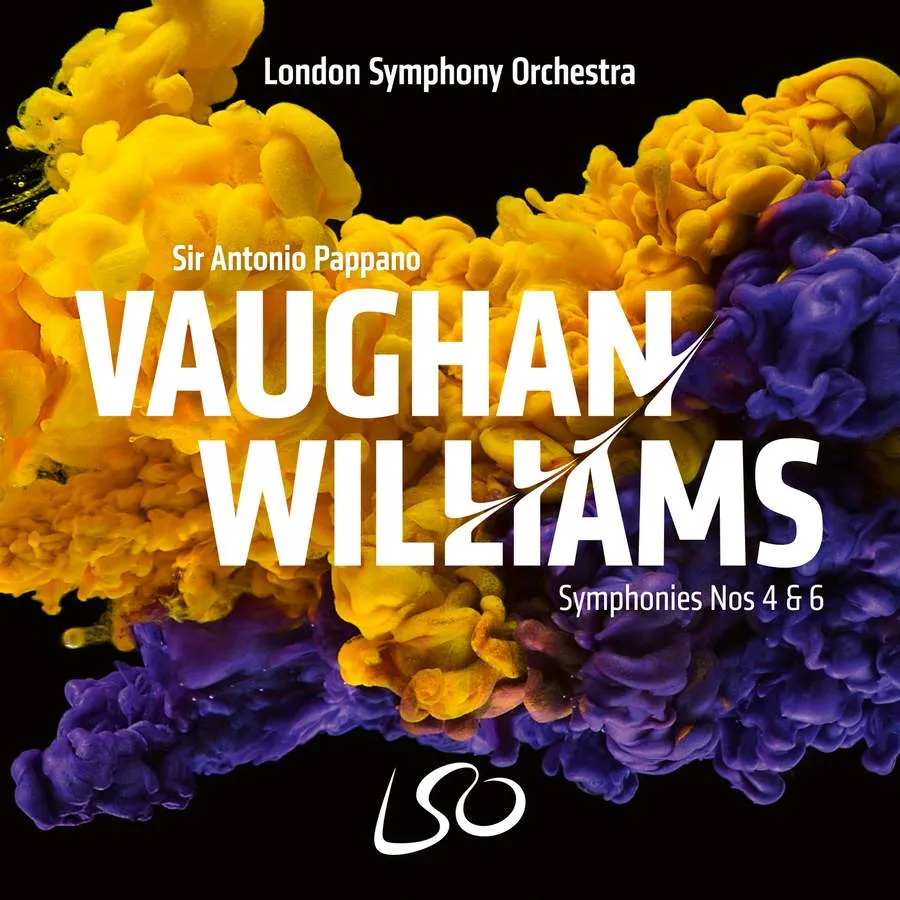
Vaughan Williams Symphony No. 4 in F minor; Symphony No. 6 in E minor London Symphony Orchestra/Antonio Pappano LSO Live LSO0867 68:06 mins
As Antonio Pappano points out in an eloquent booklet introduction, his interpretations of Vaughan Williams’s two most combative symphonies coincided with historic evenings: the Fourth of 1934 on a tense, angry election night, the post-World-War-Two Sixth fading to nothing before the lights were switched off in concert halls around the country at 5.30pm the next afternoon. Privileged to be there on both occasions – the entire concerts were unforgettable – I wondered how the performances would hold up in a recording. There was no need to have worried: they’re both electrifying, and they sound absolutely magnificent.
Too much so in the case of the Fourth? The dissonances can take a bonier, spikier approach. But note how often Vaughan Williams writes ‘cantabile’, ‘espressivo’ and ‘appassionato’; in the score, often for themes where you wouldn’t expect such qualities. Pappano makes sure the work sings as often as it can; only the first violins in the slow movement are pointedly deadened. This is a terrible beauty, energetic, Satanic, utterly spellbinding, keeping enough in reserve to make the biggest climaxes truly shattering. And there’s a very special quality to the muted, divided strings as they head to the 14-part chord that ends the first movement. Special, too, are the wind solos – an unearthly oboe (performed by Juliana Koch) and a calm flute (performed by Gareth Davies) on the cusp of silence.
- We named London Symphony Orchestra one of the best orchestras in the world
The opening bars of this Sixth, a cry of anguish that’s also passionate bel canto song, promises the very best recording of the work. You might need a break between the two symphonies, but undeniably the apocalyptic vision continues; the relatively serene Fifth comes between, of course, and makes for a magnificent trilogy in concert – maybe Pappano can try that out when he takes over from Simon Rattle as the LSO’s principal conductor in the 2023-24 season, excellent news which has just recently been announced by the orchestra. Pappano makes it clear that the great air on a G string which calmly emerges towards the end of the first movement doesn’t come out of nowhere; its melodic contours are well delineated in the hurly-burly earlier. The tension of threatened destruction in the tattoos of the ensuing Moderato is palpable; we felt the terror in the hall and it leaps out on this recording too.
Focused mania in the nasty scherzo is perfectly gauged – properly non-human work from tenor saxophonist Bradley Grant here – and there’s still beauty to be found in the lunar landscape of the Epilogue, never rising above pianissimo, sometimes offering the ghost of a song.
You could have heard a pin drop in the sparsely populated Barbican; the oddly alive background quiet of the recording does not lie. Vaughan Williams must have known Shostakovich’s Eighth Symphony and its bleak, unyielding Passacaglia when he composed this; but he provides a masterpiece of equal stature in a different symphonic progress. Rostropovich’s live performance of the Shostakovich with the LSO is one of the great recordings; now Pappano’s Vaughan William joins it.
There really are stunning times ahead for the London Symphony Orchestra and Antonio Pappano, no doubt about it.
Read more reviews of the latest Vaughan Williams recordings
David Nice